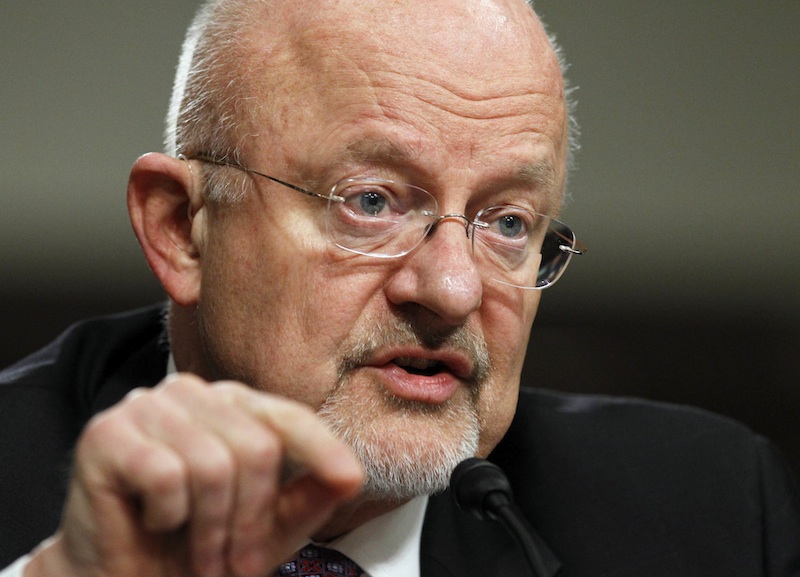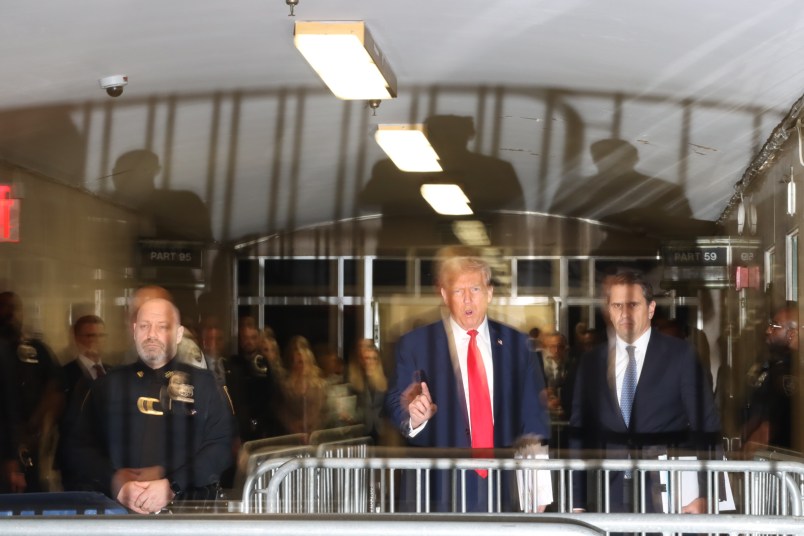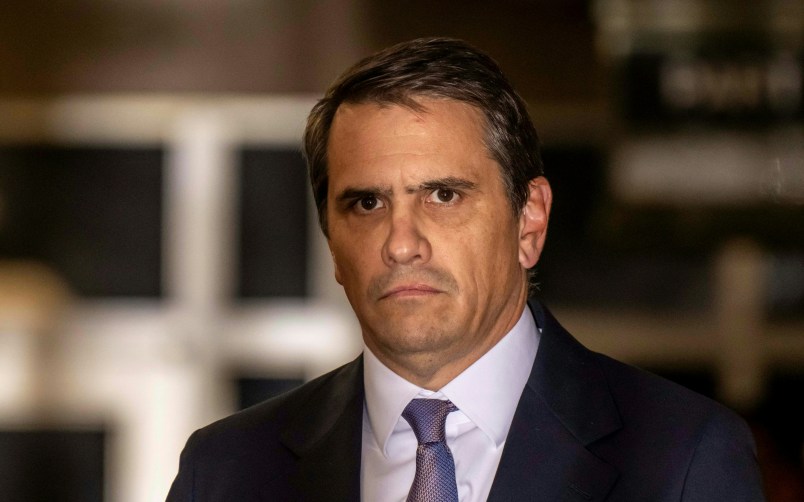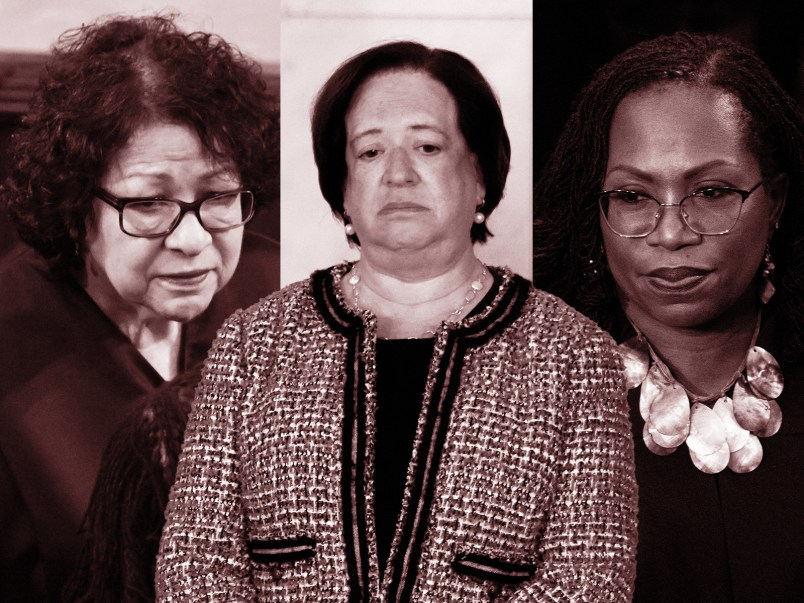WASHINGTON (AP) — Nations spying on each other’s leaders is a two-way street and a longtime practice in the intelligence world, according to the U.S. intelligence chief. But a surveillance sweep on phone records overseas that has prompted an anti-American backlash was carried out by European governments, not the U.S., another intelligence official said.
National Intelligence Director James Clapper spoke Tuesday to lawmakers in a Congress divided over how to revise National Security Agency surveillance programs that have fueled bitter criticism at home and abroad. Though most of the programs were enacted as a result of the Sept. 11, 2001, terrorist attacks, U.S. officials are nearly unanimous in saying they’re ready for a review to see if the scope of spying remains necessary.
At a House Intelligence Committee hearing, Clapper defended the secret surveillance that sweeps up phone records and emails of millions of Americans as vital to protecting against terrorists. He played down European allies’ complaints about spying on their leaders, saying they do it, too.
“That’s a hardy perennial,” Clapper told lawmakers.
Clapper said that during his 50 years working in intelligence it was “a basic tenet” to collect, whether by spying on communications or through other sources, confidential information about foreign leaders that reveals “if what they’re saying gels with what’s actually going on.”
The committee chairman, Rep. Mike Rogers, R-Mich., asked whether U.S. allies had conducted the same type of espionage against American leaders. “Absolutely,” Clapper responded.
Asked about collection of phone records in France, Spain and elsewhere, the NSA’s director, Gen. Keith Alexander, testified that the U.S. did not collect European records, as was reported over the past week to anger across Europe.
Alexander said the U.S. was given data by NATO partners as part of a program to protect military interests. He disputed that the program targeted European citizens, but he did not offer specifics. He called the reports “completely false.”
As for efforts at home, the intelligence leaders defended sweeping up records of U.S. phone calls as necessary to combat terrorism. The Obama administration vigorously opposes efforts to curtail the internal spying programs that have angered some Americans.
Rogers urged lawmakers not to scrap an important investigative tool. “We can’t ask the FBI to find terrorists plotting an attack and then not provide them with the information they need,” he said.
Others on the panel predicted that the programs will be overhauled. “There will be changes,” said Rep. Jan Schakowsky, D-Ill. Of Clapper’s support for the intelligence programs, she said, “What I heard from you was a robust defense effectively of the status quo.”
The nation’s post-Sept. 11 surveillance programs, revealed by classified documents provided by former NSA analyst Edward Snowden, are under unprecedented scrutiny, especially after recent revelations that the NSA monitored German Chancellor Angela Merkel’s cellphone and those of up to 34 other world leaders.
A bipartisan plan introduced Tuesday would end the NSA’s sweep of phone records, allowing the government to seek only records related to ongoing terror investigations. White House press secretary Jay Carney declined to take a position on the legislation, put forward by Rep. James Sensenbrenner, R-Wis., and Senate Judiciary Chairman Patrick Leahy, D-Vt., with a broad array of support. Carney said the administration is working with Congress on “appropriate reforms.”
Asked about the reports of eavesdropping on world leaders, President Barack Obama himself said in a Fusion network television interview that the U.S. government is conducting “a complete review of how our intelligence operates outside the country.” He declined to discuss specifics or say when he learned about the spying on allies.
Another U.S. official said Obama did not know the NSA was monitoring Merkel’s communications until after his visit to Germany in June. That official said information about the surveillance of foreign leaders emerged in the course of the White House’s broader review of spying programs, triggered by media reports based on documents leaked by Snowden. The official was not authorized to discuss the matter by name and insisted on anonymity.
The White House says the United States isn’t currently listening to Merkel’s conversations and won’t do so in the future. Carney wouldn’t say whether the U.S. is monitoring the calls of other friendly leaders or whether Obama thinks that sort of surveillance of allies should go on.
In rare agreement, Senate Majority Leader Harry Reid, D-Nev., and House Speaker John Boehner, R-Ohio, both said Tuesday that it was time for a thorough review of NSA programs. Both have been strong supporters of the surveillance.
Sen. Dianne Feinstein, chairwoman of the Senate Intelligence Committee, called for a “total review of all intelligence programs” following the Merkel allegations.
Several longtime U.S. allies have joined Germany in expressing their displeasure about spying on their leaders.
Spain’s prosecutor’s office said Tuesday it had opened a preliminary inquiry to determine whether a crime was committed by NSA surveillance. French President Francois Hollande said the United States should not be eavesdropping on its allies but said U.S. officials were cooperating with Europe to fix the problem.
Belgian Prime Minister Elio Di Rupo’s office on Tuesday confirmed a report in De Standaard that at his most sensitive meetings the premier now is asking government ministers to leave their mobile phones outside the room.
___
Associated Press writers Connie Cass, Donna Cassata and Kimberly Dozier in Washington, Frank Jordan, Geir Moulson and Robert H. Reid in Berlin, Juergen Baetz in Brussels, Ciaran Giles, Jorge Sainz and Alan Clendenning in Madrid and Sarah DiLorenzo in Paris contributed to this report.
___
Follow Lara Jakes at https://twitter.com/larajakesAP
and Julie Pace at http://twitter.com/jpaceDC
Copyright 2013 The Associated Press. All rights reserved. This material may not be published, broadcast, rewritten or redistributed.










